Search
Search Results

Definition
Ancient Egyptian Vizier
The vizier in ancient Egypt was the most powerful position after that of king. Known as the djat, tjat, or tjati in ancient Egyptian, a vizier was the equivalent of the modern-day prime minister of the nation who actually saw to the day-to-day...
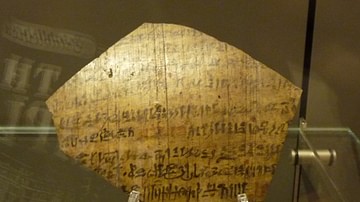
Article
A Ghost Story of Ancient Egypt
The best-known ghost story from ancient Egypt is known, simply, as A Ghost Story but sometimes referenced as Khonsemhab and the Ghost. The story dates from the late New Kingdom of Egypt (c. 1570 - c.1069 BCE) and specifically the Ramesside...
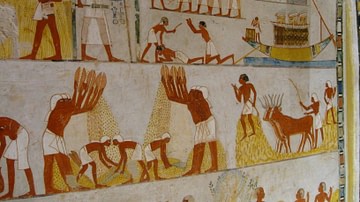
Article
Jobs in Ancient Egypt
In ancient Egypt, the people sustained the government and the government reciprocated. Egypt had no cash economy until the coming of the Persians in 525 BCE. The people worked the land, the government collected the bounty and then distributed...
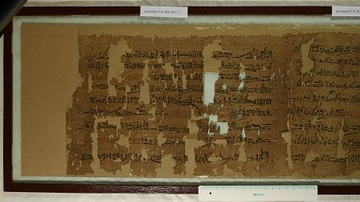
Article
The Satire of the Trades
The literature of ancient Egypt is as rich and varied as any other culture. From the inscriptions of the Old Kingdom of Egypt (c. 2613-2181 BCE) through the Love Poems of the New Kingdom (c. 1570 - c. 1069 BCE) the Egyptian scribes produced...
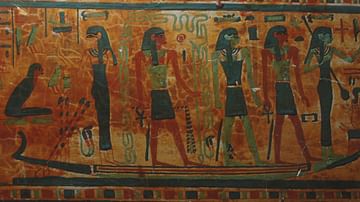
Article
Ships of the Gods of Ancient Egypt
The Nile River was the source of life for the ancient Egyptians and so figured prominently in their religious beliefs. At night, the Milky Way was considered a heavenly Nile, associated with Hathor, and provider of all good things. The Nile...
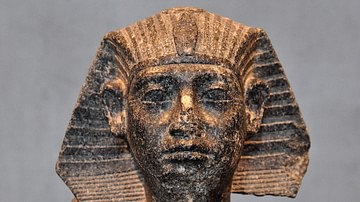
Definition
Senusret III
Senusret III (c. 1878-1860 BCE, also known as Senwosret III, Sesostris III) was the 5th king of the 12th Dynasty of the Middle Kingdom of Egypt (2040-1782 BCE). His reign is often considered the height of the Middle Kingdom which was the...
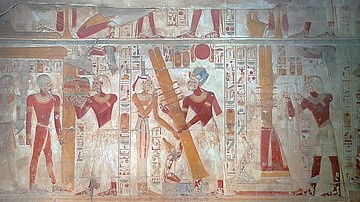
Article
The Forty-Two Judges
The Forty-Two Judges were divine entities associated with the afterlife in ancient Egypt and, specifically, the judgment of the soul in the Hall of Truth. The soul would recite the Negative Confession in their presence as well as other gods...
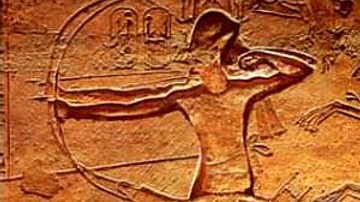
Article
The Battle of Kadesh & the Poem of Pentaur
The Poem of Pentaur is the official Egyptian record (along with The Bulletin) of the military victory of Ramesses II (known as The Great, 1279-1213 BCE) over the Hittite King Muwatalli II (1295-1272 BCE) at the Battle of Kadesh in 1274 BCE...

Collection
Ancient Egyptian Gods
The worship of Egyptian gods dates to the Predynastic Period in Egypt (c. 6000 to c. 3150 BCE) but is no doubt much older as the veneration of these deities was already established in rudimentary form through rock carvings dated to c. 6000...
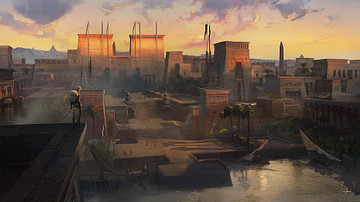
Definition
Memphis (Ancient Egypt)
Memphis was one of the oldest and most important cities in ancient Egypt, located at the entrance to the Nile River Valley near the Giza plateau. It served as the capital of ancient Egypt and an important religious cult center. The original...